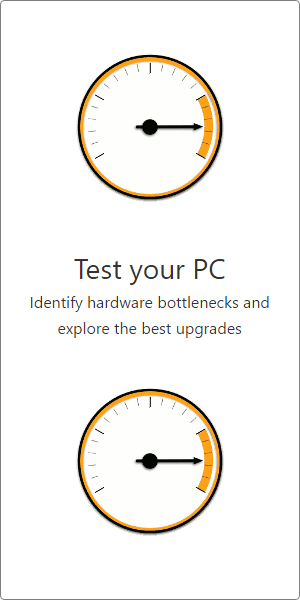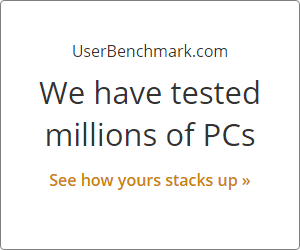Effective Speed
+20%
Poor: 71%
Great: 85%
SPEED RANK: 93rd / 714
Poor: 86%
Great: 101%
SPEED RANK: 73rd / 714
| Effective 3D Speed
Effective 3D Gaming GPU Speed |
78 % | 93.7 % | Faster effective speed. |
Average Score
+15%
Overclocked Score
+24%
Game FPS
+9%
 CSGO CSGO
Avg. Fps @ 1080p on Max |
158 Fps | 200 Fps | Better CSGO Fps. |
|||
 Fortnite Fortnite
Avg. Fps @ 1080p on Max |
117 Fps | 129 Fps | Better Fortnite Fps. |
|||
 PUBG PUBG
Avg. Fps @ 1080p on Max |
89 Fps | 94 Fps | Slightly Better PUBG Fps. |
|||
 GTAV GTAV
Avg. Fps @ 1080p on Max |
82 Fps | 85 Fps | +3% | |||
 LoL LoL
Avg. Fps @ 1080p on Max |
189 Fps | 204 Fps | Slightly Better LoL Fps. |
|||
 Overwatch Overwatch
Avg. Fps @ 1080p on Max |
123 Fps | 125 Fps | +2% | |||
 BF1 BF1
Avg. Fps @ 1080p on Max |
108 Fps | Better BF1 Fps. |
97 Fps | |||
 The Witcher 3: Wild Hunt The Witcher 3: Wild Hunt
Avg. Fps @ 1080p on Max |
87 Fps | 92 Fps | Slightly Better The Witcher 3: Wild Hunt Fps. |
|||
 Minecraft Minecraft
Avg. Fps @ 1080p on Max |
198 Fps | 259 Fps | Much Better Minecraft Fps. |
|||
 DOTA 2 DOTA 2
Avg. Fps @ 1080p on Max |
150 Fps | +0% | 150 Fps | |||
 WoW WoW
Avg. Fps @ 1080p on Max |
79 Fps | 97 Fps | Better WoW Fps. |
|||
 WoT WoT
Avg. Fps @ 1080p on Max |
130 Fps | +1% | 128 Fps |
Value & Sentiment
+233%
Nice To Haves
+8%
Conclusion
Average Bench 78%
Average Bench 93.7%
User Builds
92,053
412,133
Systems with these GPUs
Top Builds that include these GPUs


